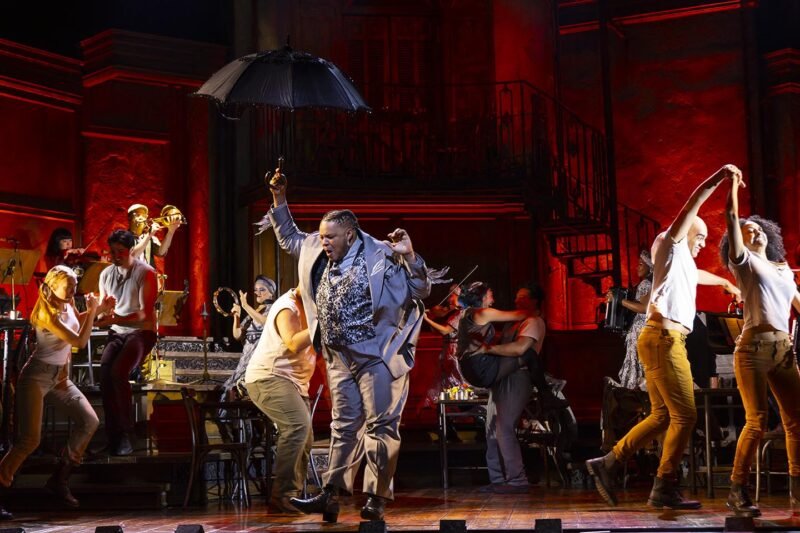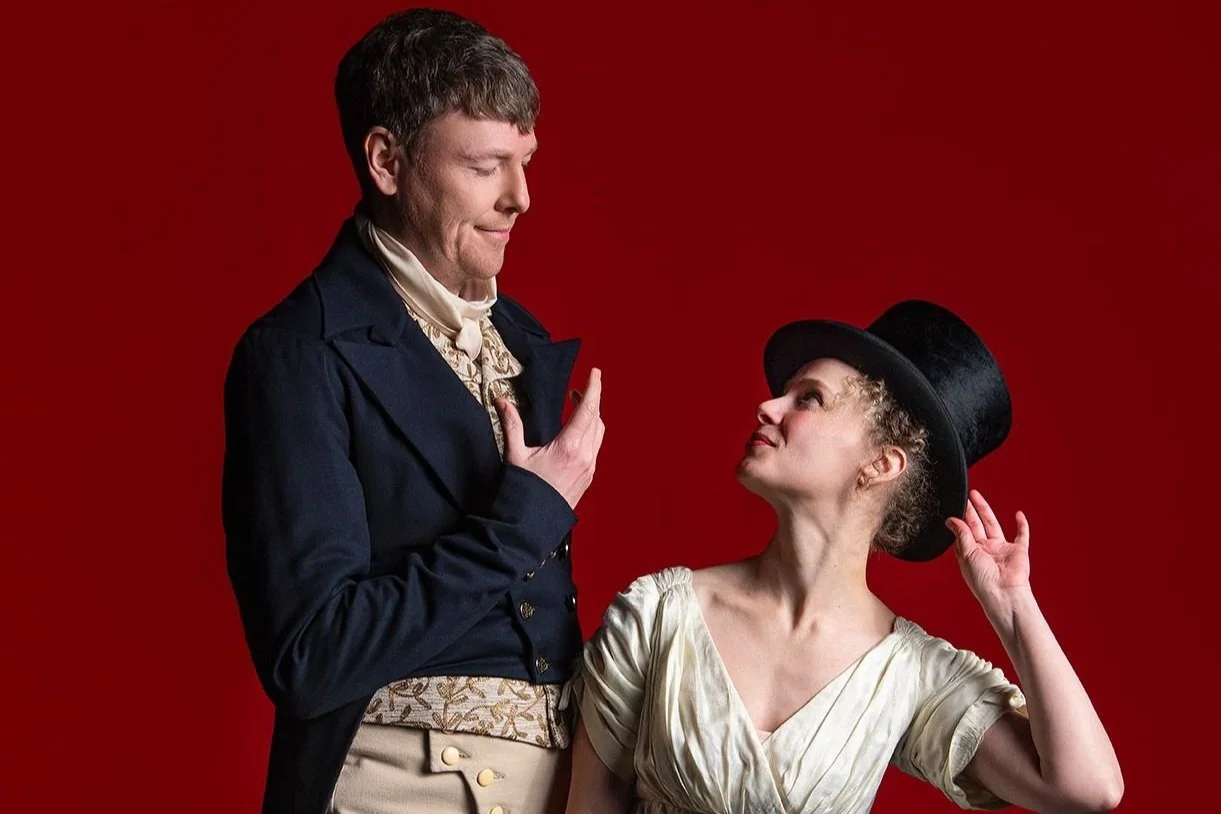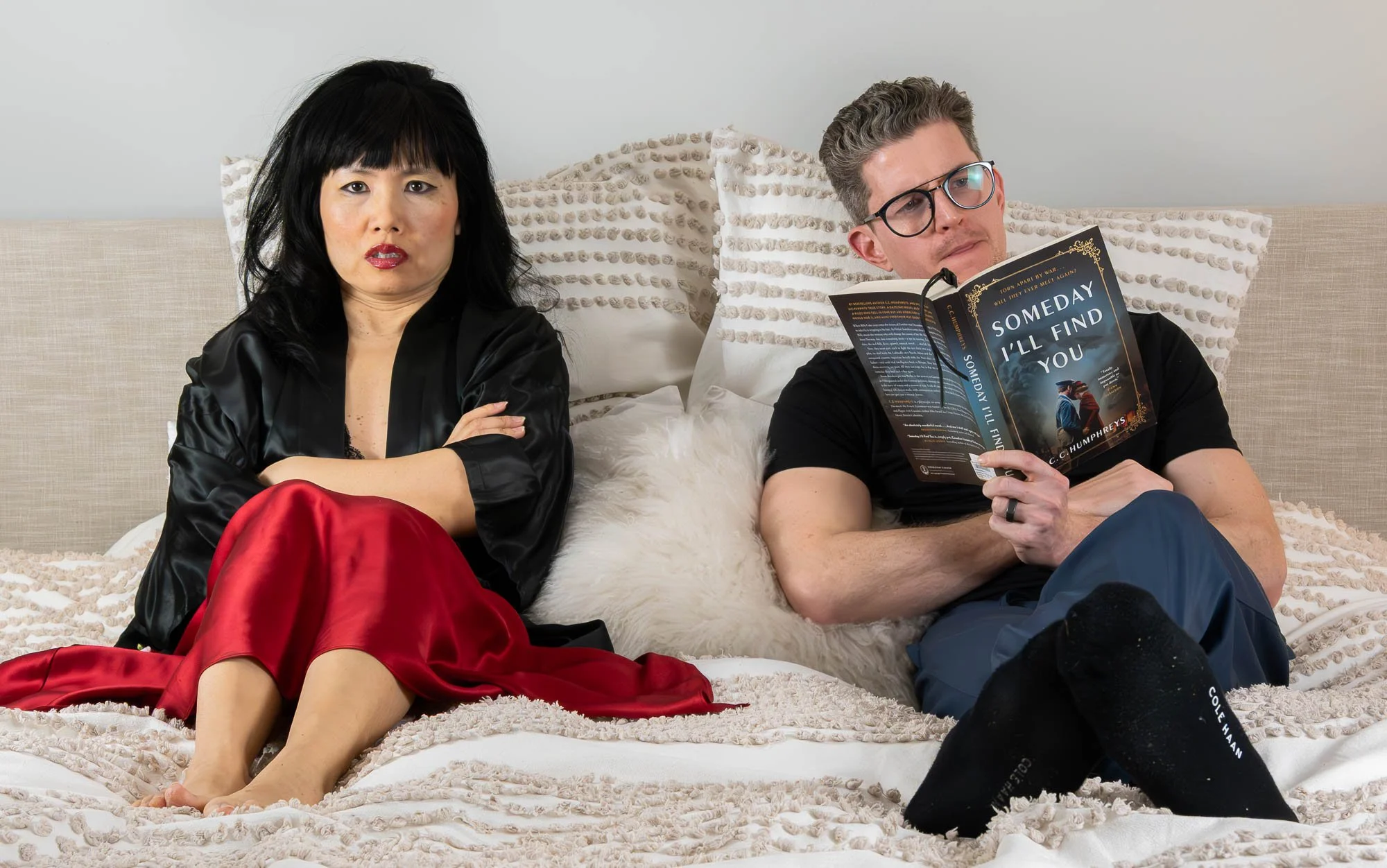Theatre review: Powerful Hadestown pulls ancient Greek tragedy into contemporary times
Striking visuals, creative staging, and meaningful songs make Tony Award-winning Orpheus and Eurydice update soar
Hadestown. Photo by T Charles Erickson
Broadway Across Canada presents Hadestown at the Queen Elizabeth Theatre to November 12
CONTEMPORARY THEATRE AND GREEK tragedy come together brilliantly in Hadestown, the Tony Award–winning musical currently in Vancouver thanks to Broadway Across Canada. In this retelling of the Greek myth of Orpheus and Eurydice, a talented, largely BIPOC cast performs poignant music and lyrics by Anais Mitchell, under director Rachel Chavkin’s imaginative concept. The show is captivating from start to finish and the story’s messages of undying love and hope hit with modern relevancy.
In Hadestown, Greek god Hermes recounts the ill-fated love story of Orpheus and Eurydice. The show has a uniquely casual opening, with the cast and band running on, dressed in modern-day attire, greeting the audience as they take their places on stage. The setting appears to be a coffee shop, perhaps in homage to the salons of pre-revolutionary France, where liberal thought leaders would gather—a symbolic reference to the socioeconomic undertones of this show.
We’re introduced to Eurydice, a young woman who is famished and cold, as we learn that in the story, winter seems to last forever, with little food available. It’s love at first sight between her and Orpheus, Hermes’ idealistic ward. But Orpheus’ idealism and focus on finishing the writing of his song—which he promises will make spring come—leaves Eurydice lonely in her search for food and warmth. In her vulnerable state, she falls prey to Hades, the god of the underworld, who convinces her to venture down to his domain.
Beginning as a play-within-a-play, where we see present-day people taking on the roles within the story, we’re gradually pulled into a striking staging of the Greek tragedy, thanks largely to Rachel Hauck’s scenic design and Bradley King’s lighting design. In this version, Hades’ underworld is a mine, where workers tirelessly and emotionlessly work away for eternity. Its entrance resembles a shaft elevator with large, foreboding doors, and the lighting effects and smoke create a striking vision as we watch characters descend or arrive. In one visually stunning sequence where Orpheus promises to rescue Eurydice in “Wait For Me”, we see lanterns swing toward the audience from the ceiling while smoke billows off the stage.
There’s electricity between Amaya Braganza as Eurydice and J. Antonio Rodriguez as Orpheus when they first meet, setting the tone for their intense story arc. Both have excellent singing voices, with Braganza delivering a touching “Flowers” when she realizes she’s likely condemned to the underworld forever. Rodriguez has an exceptional falsetto which he seamlessly blends into his chest voice, aptly demonstrated in “Epic III”, a moving highlight of the show. Mitchell’s score uniquely ranges from flavourings of New Orleans jazz to contemporary pop acoustic stylings, and when Rodriguez passionately sings and stomps his feet while playing the guitar (representing a lyre), it draws shades of Ed Sheeran and emotional Irish pub performances, in all the right ways—helping to give this show a contemporary edge.
Broadway veteran Lana Gordon is a force to be reckoned with as Persephone, wife of Hades and queen of the underworld. Her larger-than-life personality and strong singing and dancing, demonstrated in her solo “Our Lady of the Underground”, are highly entertaining and break up the heavy drama. She’s played Velma Kelly in Chicago on Broadway, and danced with Alvin Ailey, so the exceptional quality of her performance is no surprise. Her emotional colours range from going from goofy and playful in “Livin’ It Up On Top” to sensitive in her dance with Hades late in the show.
Matthew Patrick Quinn’s powerful bass voice and stage presence make for an interesting and convincing Hades, and he also knows how to work his strut on Hauck’s revolving stage. Will Mann makes for a charming narrator, Hermes, and the trio of Marla Louissaint, Lizzie Markson, and Hannah Schreer are fierce, sassy, and sometimes disturbingly creepy as the story’s Fates.
David Neumann’s pedestrian choreography, in which the highly-trained ensemble purposefully dance with unstretched feet and bent legs, helps give the show a “realistic” look at the beginning, when we see everyday people joining in to tell the story. But don’t be deceived by this seemingly casual look. Many physical movements have been carefully thought out in tandem with Mitchell’s score, the scenic elements, and the lighting effects. At one point, a sudden and sustained breath taken by everyone onstage adds dramatic emphasis and suspends the action—a great example of the creative energy that powers this show.
In short, Hadestown is simply breathtaking. There’s sophisticated, emotional meaning to Mitchell’s score, performed with precision and passion by the cast and band. The onstage visuals are relatively simple for a large-scale Broadway show, but powerfully effective. And the production’s delivery of Orpheus and Eurydice’s tragedy sings in a uniquely contemporary tone. There are also deeper levels of meaning around climate change and socioeconomic conditions. On top of all of this, if you’re one of those people who love re-living tragic love stories (think Titanic), you can add Hadestown to the list of heart-achers that you’ll want to see again and again.


































